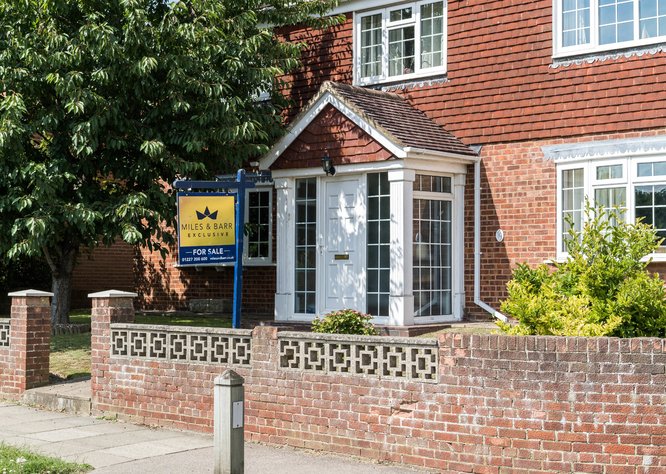
- Home
- Get Social
- Blog
- News
- A Comprehensive Guide to Investing in Commercial Property
29 Sep 2021
A Comprehensive Guide to Investing in Commercial Property
Commercial property investment presents an excellent opportunity to diversify your investment portfolio. It offers a reliable source of income, demands less day-to-day management compared to residential properties, and can be readily found with the assistance of a skilled estate agent. If you're contemplating an investment in commercial property, this guide will provide you with the essential information you need.
Why Consider Commercial Property Investment
One of the principal reasons for considering commercial property investment is the potential yield (interest) it can generate. Over the years, commercial properties have consistently delivered higher yields than their residential counterparts. While residential properties typically yield a maximum of around 8%, commercial properties can produce returns of up to an impressive 15%.
Many investors view commercial property as a more secure option compared to residential properties. This is primarily because commercial tenants often commit to longer lease agreements. Independent or smaller businesses typically sign leases for an average of five years, whereas larger household brands or high-street operators can secure leases lasting up to 30 years.

From a landlord's perspective, managing commercial property is relatively straightforward. Tenants are typically responsible for both repairs and insurance, significantly reducing your responsibilities. Your primary duties typically involve rent collection and maintaining buildings insurance, which is usually outlined in the lease agreement.
Commercial property use has become more flexible in recent times. All commercial properties are now classified under the E category, simplifying the process of changing a property's purpose. However, certain alterations may still require planning permission, such as the installation of extractor fans. In such cases, consulting a conveyancer is advisable to navigate the legalities.
In summary, commercial property offers the benefits of security, ease of management, and increased flexibility.
How to Secure a Commercial Mortgage
Securing a commercial property mortgage follows a process similar to obtaining a residential mortgage, with some key distinctions. Commercial mortgages typically necessitate a higher deposit, ranging from 25% to 35%.
Lenders may also be more cautious about granting mortgages for properties that are not yet generating income. If, for instance, you own a property comprising a shop with two flats above it, and the entire building sits empty, lenders may be less inclined to approve a mortgage. For guidance in such situations, consult a commercial adviser.
To expedite the mortgage application process, it's crucial to ensure you have the necessary documentation in place. This includes proof of identity and address, three months' worth of bank statements, profit & loss accounts, lease or tenancy agreements, and a robust business plan complete with financial projections.
The application process typically involves the submission of an Asset and Liability form, completion of the mortgage application itself, property valuation, thorough due diligence, and ultimately, the issuance of an offer.
How to Value Commercial Property
The valuation of commercial property hinges on its size and location. Each high street across the country possesses a standard pound-per-square-foot rate used to ascertain its value. For instance, in Whitstable, these rates fluctuate between £32 and £36 per square foot.
Commercial properties are divided into distinct zones for valuation purposes. Zone A comprises the space nearest to the customer entrance and commands the highest price per square foot. Zone B represents the next 20 feet and is typically priced at half the rate of Zone A. Finally, Zone C accounts for the remaining space and is also priced at half the rate of Zone B.
For storage spaces, such as basements, the cost per square foot usually ranges from £1 to £4. Upper-floor storage spaces, on the other hand, command higher rates, ranging from £6 to £12 per square foot.
It's worth noting that commercial rates can vary significantly from one town to another. Out-of-town shopping centres, like Bluewater, often come with premium rates, sometimes double those of high street properties.

For office spaces, the value is contingent on the location. In Kent, for instance, the maximum price per square foot is £12, with an average price of £10 to £12 for office spaces.
Tenant rent is calculated based on square footage and is subject to fluctuation, influenced by market demand.
How to Purchase Commercial Property
The process of buying commercial property closely mirrors that of purchasing residential property. You initiate your search online, register with an estate agent, view potential properties, make an offer, and apply for a mortgage (which can be streamlined with the assistance of a commercial adviser). Subsequently, the transaction proceeds through the conveyancing process.
One notable advantage of purchasing commercial property is that the process is often more expedient than its residential counterpart, primarily because there's typically no chain involved. Furthermore, the likelihood of transactions falling through is significantly lower with commercial properties.
It's important to be aware that stamp duty applies to commercial properties, with rates parallel to those for residential properties. For properties valued up to £150,000, stamp duty is not applicable. Properties valued between £150,001 and £250,000 incur a 2% stamp duty rate, while properties exceeding £250,001 are subject to a 5% stamp duty rate.
In your pursuit of the right commercial property, there are several key questions to consider. Firstly, assess whether the property is tenanted. Properties generating income (i.e., tenanted properties) typically receive more favourable consideration from mortgage lenders. Focus your attention on such properties whenever possible.
Additionally, inquire about the remaining duration of any current tenant leases. Lenders generally prefer properties with longer leases, typically exceeding three years, as this assures a minimum duration of income for mortgage repayment.
If you're considering a property with an existing lease, it's essential to review the lease agreement in detail. Look for details regarding tenant break clauses and the frequency of rent reviews, as this information is crucial for your investment decision-making.

Lease agreements also specify the frequency of rent payments. Unlike residential properties, where rent is often paid monthly, commercial tenants typically pay rent quarterly or less frequently. Understanding these payment terms is essential for managing your finances as a landlord.
When evaluating potential tenants, it's advisable to inquire about their rental payment history. Ensuring the reliability of tenants is vital to avoid any unexpected financial challenges. However, it's relatively rare to encounter unreliable tenants. In extreme cases, where a tenant consistently fails to meet their rental obligations, you have the legal right to engage bailiffs for eviction.
For office spaces, it's worth exploring whether the property is serviced. Serviced spaces are attractive to businesses due to reduced maintenance responsibilities and the convenience of a single, bundled payment for services like cleaning and maintenance. Such features can enhance your property's appeal to potential tenants.
Furthermore, there's often more room for price negotiation in commercial property transactions. Unlike residential properties, commercial real estate transactions are often viewed as business investments, which can lead to more flexibility in negotiation.
When is an EPC required for commercial property?
An Energy Performance Certificate (EPC) assesses a property's energy efficiency. Similar to residential properties, an EPC is a legal requirement for commercial properties and must be conducted by a qualified commercial assessor. To lease a commercial property, it must achieve at least an E rating, while for sales, a minimum G rating is necessary.
How to Sell Commercial Property
The process of selling commercial property closely parallels the steps involved in selling residential property. You begin by listing the property with a commercial estate agent, then proceed to identify a buyer, appoint a solicitor, complete the necessary due diligence, and ultimately, conclude the sale. One advantage of selling commercial property is the potential for a quicker transaction, given the absence of a property chain.
Got more questions about commercial property? Get in touch with the Miles & Barr commercial team.

Instant Property Valuation
What's yours worth? An up-to-date valuation of your property is the first step to finding your dream home!
